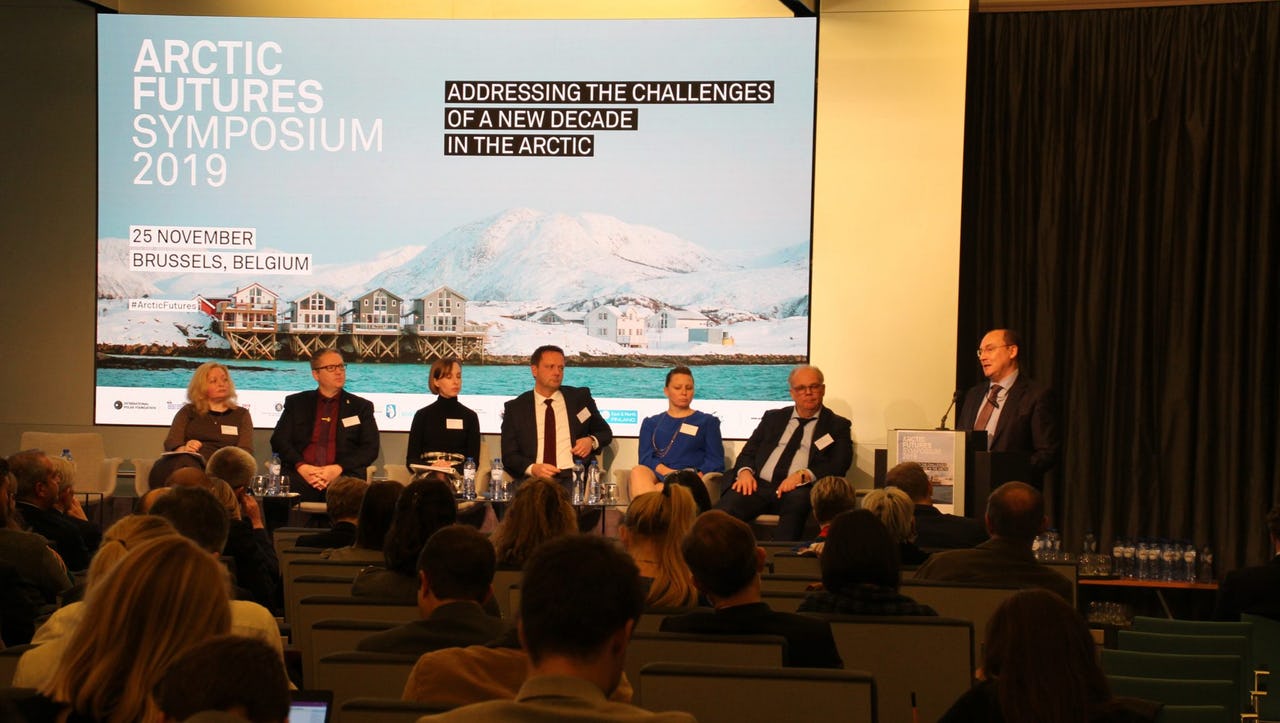The EU and its Arctic Spirit: Solving Arctic Climate Change from Home?

Ambassador Jari Vilen, Senior Advisor in Arctic policy matters in the European Political Strategy Centre (EPSC) – the European Commission’s in-house think tank, presenting at the Arctic Futures Symposium 2019. Photo: North Norway European Office
In recent years, the Arctic has increasingly found itself in the mind of European Union policymakers. While some recognize the need for the EU to update its Arctic policy to take into account the increased international interest, there did not seem to be any willingness to do so since 2016 and the last Joint Communication on An integrated European Union policy for the Arctic by the European Commission and the High Representative. Rumours in the Council’s hallways or murmurs in the European Commission’s own think tank were saying that the EU is Arctic, and the region should be at the forefront of both domestic and foreign policy. On December 9, 2019, under the Finnish chairmanship, the Council adopted new Conclusions on the EU Arctic policy calling the EU to continue to make a significant contribution in both regional and multilateral fora dealing with Arctic matters and initiating the process to update the EU Arctic policy as set out in 2016. The Council notes that many of the issues affecting the region are of a global nature and are more effectively addressed through regional or multilateral cooperation. While the EU has already shown signs of wanting to strengthen its environmental regulatory framework (#europeangreendeal), updating the EU Arctic policy for it to encompass global challenges while expanding the EU’s role as a leader in Arctic affairs is not an easy task.
In a recent assessment for European View on the EU’ and its Arctic spirit, we argue that the path towards more EU–Arctic involvement should not necessarily start in the region itself but essentially closer to home – in EUrope.